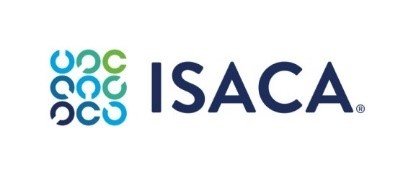Two-Thirds of Indian Digital Trust Professionals Expect AI Driven Cyber Threats and Deepfakes Will Keep Them Up at Night in 2026 , Finds ISACA Research
Bangalore, India, 28th October 2025: ISACA, the leading global professional association dedicated to advancing careers in digital trust, unveiled its 2026 Tech Trends & Priorities Pulse Poll highlighting the top challenges and focus areas shaping the technology and cybersecurity landscape for the year ahead.

As per the report, AI-driven cyber threats and deepfakes (67 percent) have emerged as the top concerns that digital trust professionals in India expect will keep them up at night in 2026. This is followed by thoughts of irreparable harm caused by failure to detect/respond to a breach (44 percent) and keeping pace with technological change (39 percent).
AI looming large
The report, based on survey responses from 2,963 professionals globally across cybersecurity, IT audit, governance, risk, and compliance functions, including 212 respondents from India, also reveals that 50 percent of Indian tech pros consider keeping up with the pace of AI-driven change as their biggest professional concern going into 2026, followed by increasing complexity of threats at 31 percent, and talent retention and hiring at 26 percent. AI and machine learning (65 percent) and generative AI and large language models (LLMs) (56 percent) also dominate the top technology trends or priorities that respondents from India anticipate will impact their work in 2026, along with data privacy and sovereignty (43 percent) and cloud security (35 percent).
However, only 22 percent of respondents indicate that their organizations are very prepared to manage the risks associated with generative AI solutions in the coming year, with 43 percent feeling somewhat prepared and 25 percent saying they are not very or not at all prepared.
AI is also expected to dominate cybersecurity threats, with AI-driven social engineering (75 percent) topping the list, followed by ransomware and extortion attacks (52 percent), and insider threats – intentional or accidental (38 percent).
“While it can sometimes feel daunting, it is imperative to approach AI not merely as a challenge but as an opportunity to harness its potential for positive impact,” says Pablo Ballarin, founder, Balusian S.L., and member of the ISACA Emerging Trends Working Group. “By enhancing our expertise and strategies, digital trust professionals can ensure resilience, uphold the integrity of digital systems, and foster trust across all digital platforms.”
Navigating a complex regulatory environment, hiring challenges
With regulatory complexity and global compliance risks (36 percent) also expected to keep digital trust professionals in India up at night next year, professionals are bracing for a more demanding compliance environment. Yet, 89 percent of Indian respondents believe cyber-related regulations will drive business growth, and 91 percent say they will strengthen digital trust over the next few years.
Regulatory compliance (79 percent), business continuity and resilience (74 percent), and workforce upskilling in data security (68 percent) are the top three focus areas for Indian organizations for 2026. On the talent front, 72 percent of Indian respondents say their organization will hire for digital trust roles such as audit, risk and cybersecurity in the coming year, but 46 percent of that group expect they will have difficulty filling those roles with qualified candidates.
Taking steps to prepare for 2026
ISACA came away with five key takeaways from the pulse poll findings that inform how organizations can prepare for the coming year:
- Establish robust AI governance and risk frameworks.
- Accelerate workforce upskilling and talent pipeline development and invest in continuous learning, certifications and internal mobility.
- Modernize legacy systems and infrastructure to reduce vulnerabilities and improve agility.
- Strengthen cyber resilience and business continuity planning by developing and regularly testing incident response plans, ransomware recovery strategies, and cross-functional crisis management protocols.
- Prepare for regulatory complexity and international compliance requirements; monitor regulatory changes; engage with expert communities; and invest in compliance tools and frameworks.
“Digital trust professionals face rapidly evolving technology, threats, and regulations that require them to constantly examine how to keep pace, stay relevant and protect their organizations,” says Chetan Anand, AVP, Information Security, and CISO, Profinch Solutions, and member of the ISACA Emerging Trends Working Group. “But the end of the year can serve as an important point in time for them to stop, reassess priorities, resources and strategies; create a plan for advancing their skills and knowledge; and make changes to set themselves and their organizations up for success in the coming year.”
Additional resources
ISACA offers a range of AI resources, including the Artificial Intelligence Audit Toolkit and several courses—including AI Fundamentals, AI Governance, and AI Threat Landscape. ISACA has also recently released its new Advanced in AI Audit (AAIA) certification and Advanced in AI Security Management (AAISM) certification.
